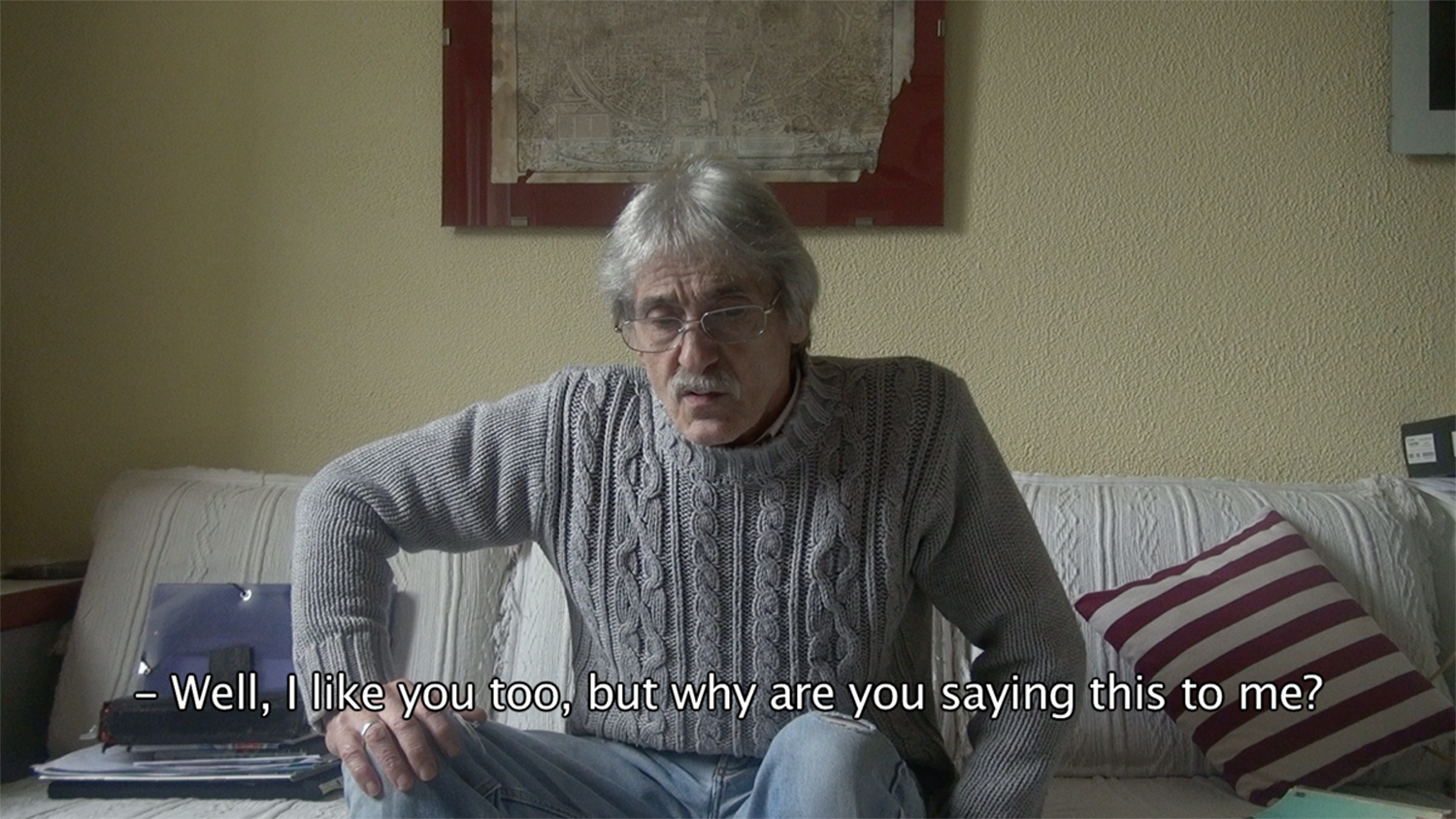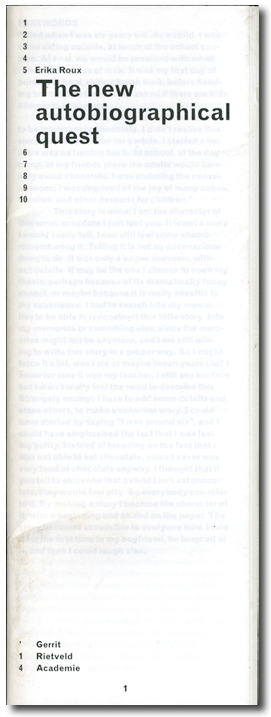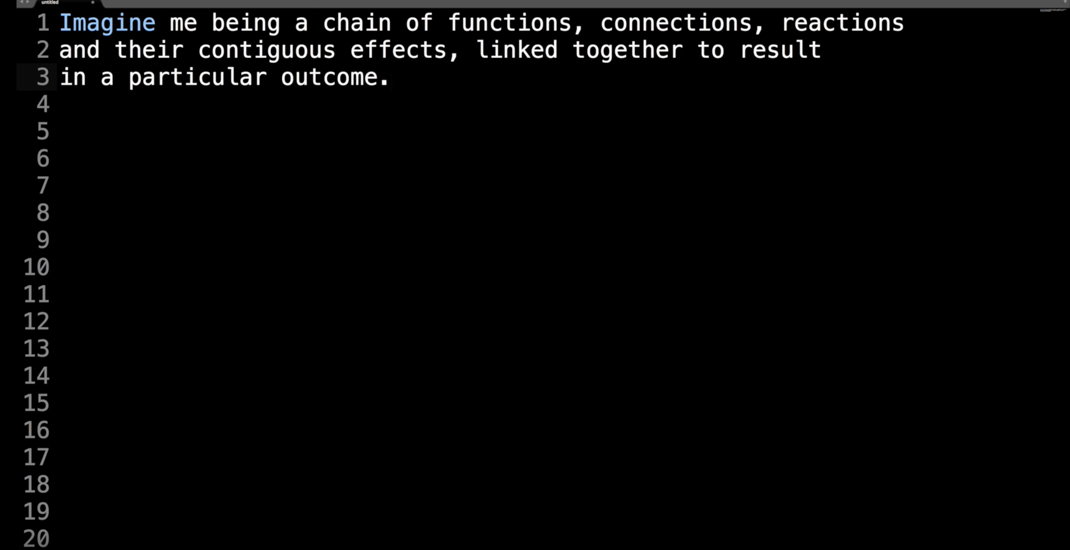fiction and non-fiction
How fiction and non-fiction communicate with each other has always been at stake in my work. I work with an intimate approach of filming, I am interested in exploring how as an artist or video maker I can relate to my own reality, more precisely to the people from my surroundings. I made few videos that dealt with my family for instance.
In my work Playing the Father, the Son, I tried to reconstruct a story from Marcel Pagnol with my father. Through the process of filming I realized that I was mostly interested by the act of making, the experience of trying to construct a story and the interaction between my father (as the subject of my film) and me (the filmmaker). In the editing I decided to reveal the making of scenes, the “behind the stage” and other conversations that my father and me would have around the fictional dialogues. The characters of the book were mixed with the characters we embody in real life, these two realities were ambiguously confronting.

I am telling my father that I like him through the dialogue of Marius, the character of Pagnol’s play. Play movie on Vimeo
...film still from 'Playing The Father, The Son' ©2014.
Autobiography in its broadest sense
Autobiographies, meaning self-writing, is a genre of the Modern era that emerged in the 18th century, influenced by the humanists ideas and followed by the romantics of the 19th century. At these times, the self and the individual were considered as the center of interest. In its tradition, autobiography was a quite narrow genre reserved for bourgeois, well-educated intellectuals. It was reserved for people having the ability to write, read and considered as being of importance for their time. Through history, as education, this genre become accessible to everyone, from every background in the written form but also in the art field.
The autobiographical project implies notions as authenticity, subjectivity, reality and fiction. We will see in this text that these concepts have been profoundly re-evaluated in the mid 20th century, changing the perception of the world and art.
We can see nowadays a revival of the autobiographical practice with artists as Sophie Calle [x] or Maiwenn [x] that I will refer to in my thesis. Committing themselves to a life narration, incorporating intimacy, personal stories, they take part in the innovation and the contribution of the development of this practice.
In my thesis I like to use the term “autobiography” in its broadest sense, to open it to a genre where art from many disciplines plays with this act of narrating a life story. I like to reconsider the traditional aspect of this practice, question the perception of this tradition and its relevance, to finally think about the necessity nowadays of artists to embark on the autobiographical project.

download this thesis by Erika Roux
all rights to this thesis are property of the author © 2014


